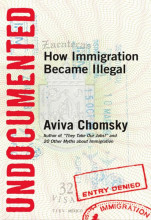Summary: Lt 629
- This + 400k other summaries
- A unique study and practice tool
- Never study anything twice again
- Get the grades you hope for
- 100% sure, 100% understanding
Read the summary and the most important questions on LT 629
-
LT 629
This is a preview. There are 96 more flashcards available for chapter 12/08/2015
Show more cards here -
early childhood SLA
People in this life-stage are often assumed to acquire language best, but actually slightly older learners can catch up if they have enough input -
critical period hypothesis
This is the claim that there is a time in puberty when access to language ‘acquisition’ is lost, though ‘learning’ is still possible -
1. Which statement best reflects an interactionistapproach to First Language Acquisition?a. Children learn language through comprehensibleinput .b. Children learn language by negotiating meaningc. ' Children learn language with scaffolding fromcaregiversd. Children learn language by habit formation
b. Children learn language by negotiating meaning -
2. When did the boy say he hurt himself?When did the boy say how he hurt himself?The fact that children who are native speakers ofEnglish easily understand the difference betweenthese two complex questions is used to providesupport for which perspective on first language acquisition?a. Behaviorismb. Innatismc. Interactionismd. Socio-cultural
b. Innatism -
3. Which of the following sentences reveals a later stageof language development?Child A: I went to school.Child B: I goed to school.a. Child B because the child is applying a \systematic past tense ruleb. Child A because the irregular past tense of gois used correctlyC. Child A because the irregular past tense hasbeen acquired as an exceptiond. we cannot determine which child is at a laterstage based on this data
d. we cannot determine which child is at a later
stage based on this data -
4. Which of the following tends to happen earliest innegation development?a. correct use with auxiliaries (helping verbs suchas can, will, might, etc.)b. fronting of negation wordsc. correct use with the auxiliary dod. correct use within questions
b. fronting of negation words -
5. Which of the following tends to happen latest inquestion development?a. use of rising intonation on single Wordsb. fronting of question wordsc. use of rising intonation on a longer statementd. correct use of the auxiliary do
d. correct use of the auxiliary do -
6. Innatist and cognitive approaches in SLA vary mostsignificantly in their perspective ona. the existence of an LADb. the importance of inputc. the mind-body relationshipd. the importance of imitation
a. the existence of an LAD -
7. The "affective filter" is most closely associated withwhich theorist?a. Skinnerb. Vygotskyc. Krashend. Chomsky
c. Krashen -
8. The zone of proximal development is most closelyassociated with ?a. Connectionismb. Competition modelc. Interactionismd. Socio-cultural approach
d. Socio-cultural approach
- Higher grades + faster learning
- Never study anything twice
- 100% sure, 100% understanding































